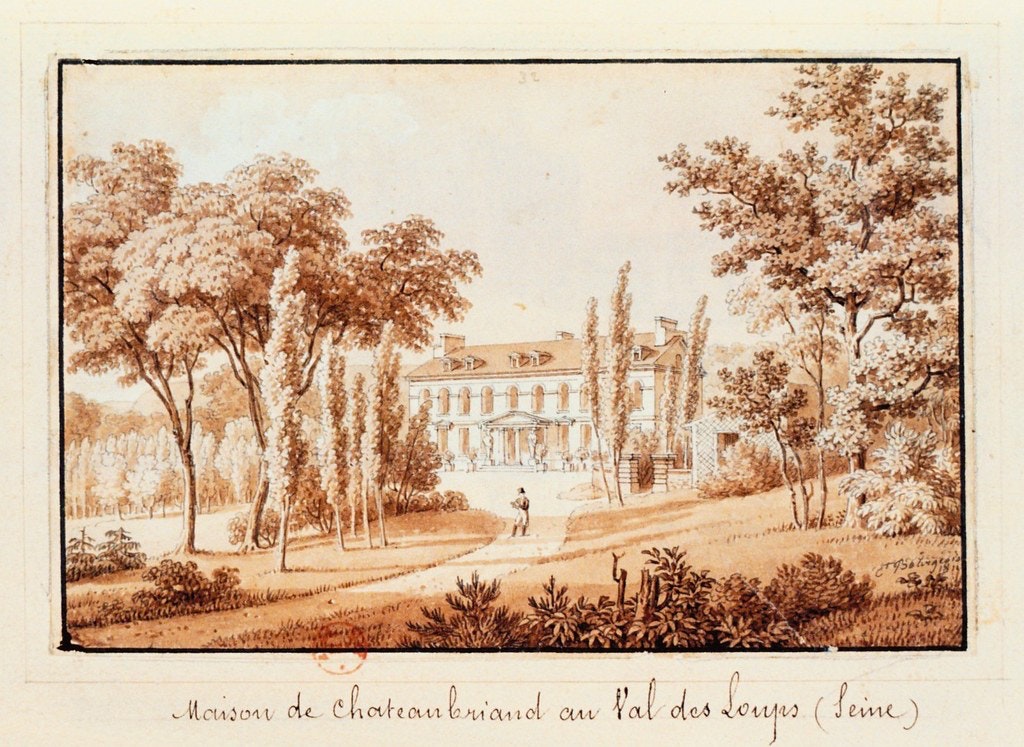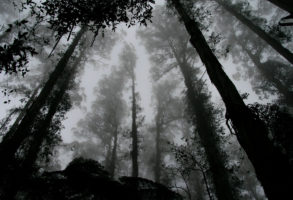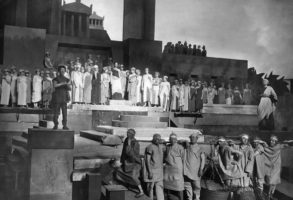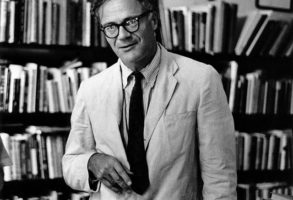
Published December 1, 2022
The French Romantics have never caught on in the English-speaking countries, and especially not in the United States. To be unfamiliar with Byron, Keats, and Shelley is still considered shameful for an educated American of a certain age, but no comparable disgrace attaches to ignorance of the very names Alphonse de Lamartine, Alfred de Musset, Alfred de Vigny. Jean-Jacques Rousseau and Victor Hugo are the notable exceptions to this vast indifference, in their limited way. Rousseau is remembered as the political firebrand who inspired Jacobin savagery, but nobody reads his masterly novel of true love foiled by class distinction, Julie; or, The New Héloïse, a European sensation in its day. Although today everybody knows of Les Misérables by way of its musical-theater incarnation, the novel itself is mistakenly patronized as adolescent fare, and Hugo’s poetry, among the greatest in any language, might as well never have been written.
So one might expect that the translation in progress of the 2,000-page autobiography by François-René de Chateaubriand, Mémoires d’Outre-Tombe, which was published posthumously in 1849–50, will attract readers literally by the dozens. The first two volumes of an anticipated four have appeared, in admirable renditions by Alex Andriesse, to a decided lack of notice. After all, Chateaubriand has nothing to recommend him but the incorruptibility of his intellect and the elegant gleam of his prose. He committed the unforgivable bêtise of being born an aristocrat in the season of radical equality, when family members and friends of his were sent off to the guillotine. His literary celebrity in his own lifetime rested chiefly on The Genius of Christianity (1802), a full-throated celebration of the faith that revolutionaries had recently jettisoned and that progressives now despise. The book found its eager readership among a populace disenchanted with both the spiritually arid cult of Enlightenment rationalism and the blood-soaked worship of Napoleonic glory. Ironically, it benefited from the appreciation of Napoleon himself, for whom good terms with the papacy had its uses. The only edition available in English is the reprint of an 1856 version from Forgotten Books, which could not be more aptly named: This remarkable tome was, is, and will remain forgotten. The loss is the reading public’s.
Perhaps there is an outside chance the Memoirs will not share that fate. It stands just a rung below Rousseau’s Confessions and Goethe’s Poetry and Truth among the supreme Romantic autobiographies. The young Chateaubriand was a self-described disciple of Rousseau who, as he matured, would find the Master increasingly suspect: “Although his morals and manners were antipathetic to mine, [Rousseau] was endowed with a talent whose outpourings had stirred my youth.” This passage goes on to recall Chateaubriand’s running into another Rousseau acolyte at the philo-sophe’s renowned bucolic retreat, the Hermitage, a virtual shrine to his tender heart. It happened to be a day “fatal to the monarchy,” when the mob invaded the palace at the Tuileries, and such a day has its lapidary instruction for the attentive: Tender-heartedness has a way of becoming heartlessness when compassion for the immiserated meets self-righteous world-altering fury.
Chateaubriand’s autobiography would demonstrate a shrewder head and a wiser heart than Rousseau’s, especially when it came to great politics, which was every French intellectual’s principal concern in that era — not to say the principal concern of most every French man and woman plain and simple, swept up in the successive whirlwinds of revolution, imperial rise and fall, and restoration of the monarchy.
The Memoirs is very much a Life and Times, sometimes more Times than Life, which tends to dwell on momentous events and their moral consequences but does make room for the strictly personal. The reader becomes familiar from the start with Chateaubriand’s ineradicable melancholy and its crown of thorns. Nearly dead at birth, he seems often to wish he’d been spared the trouble of coming out alive. “I had an aversion to life. . . . Not a day passes when, reflecting on what I have been, I do not see in my mind’s eye the rock where I was born, the room where my mother inflicted life on me, the raging tempest that was my first lullaby, the doomed brother [his godfather] who gave me a name that I have almost always dragged through disaster.” He grew up on the coast of Brittany, where shipwreck and sailors’ drowning were common occurrences: “No sooner was I born than I heard talk of death.” Fortunately, misfortune did not daunt him but instead renewed his vital force: “Adversity was to me what the earth was to Antaeus: I gather strength at my mother’s breast. If happiness ever took me in its arms, I would suffocate.” Small danger of that happening. Lugubriousness was to be his fate because he had made it his sad choice. “I never attend a baptism or a wedding without a bitter smile or a pang of the heart. After the unhappiness of being born, I know of none greater than that of giving life to a man.” The saving luck of a wretched and childless marriage at least averted that misery.
Not surprisingly, Chateaubriand suffered from a nearly deadly case of ennui, which moved him to attempt suicide as a young man. “Everything wearies me: I haul my boredom through my days like a chain, and everywhere I go I yawn away my life.” Attempting a cure for this fashionable affliction, he sailed off to America in 1791 with the intention of discovering the Northwest Passage. It would stay undiscovered, but in a five-month tour of the country Chateaubriand turned his discerning mind to the native disposition with good effect. The highlight of the journey was his encounter with George Washington, a prodigy of selflessness, unlike the common run of masterful warrior-statesmen, Napoleon being the prime offender: “It was not his own destiny that this new species of hero carried; it was the destiny of his country.”
Not all of Chateaubriand’s thoughts on American democracy were so happy. In some of his admonitions and prescient observations, he sounded not unlike his fellow aristocrat (and his nephews’ cousin) Alexis de Tocqueville at his most foreboding. The excellence of intellect and character that distinguished the Founders, lamented Chateaubriand — he was making a final pass over his text in 1846 — has been lost, and mediocrity prevails in public life. Despite the vaunted American passion for liberty, it is only the means to the satisfaction of the true national craving: “So long as liberty produces gold, an industrial republic performs wonders; but when the gold is spent or exhausted, the republic loses this love of liberty that is founded not on moral sentiment but originates in a thirst for profit and a passion for industry.” Money is the American preoccupation, and the ability or inability to make a lot of it is coming to define political fundamentals perniciously: “The enormous imbalance of wealth is a more serious threat to the spirit of equality than any other.” The “cold hard egotism” of the townsmen, whose every thought is of “piastres and dollars, banknotes and silver,” forms an unstable emotional base for the virtue of the multitude. To fight off their “extreme ennui,” Americans prefer their entertainments violent and, whenever possible, lethal. “In America, men amuse themselves by leaping into Niagara Falls to the cheering of fifty thousand planters: half-savages who laugh only at the sight of pain and death.” All that said, Chateaubriand foresees a future of material prosperity for the United States, though the prospects for high culture look dubious.
When he returned to France in 1792, the streets of Paris were rife with a new depravity, in which every face he saw was either menacing or terrified. Decamping to Belgium, he enlisted in a counterrevolutionary army, heavy on noblemen and Austrians. He was wounded in battle by a shell fragment in the thigh, and his gangrenous leg, along with a case of smallpox, nearly killed him. With daring, heroic endurance, and uncommon luck, he made it to England, where he would live in exile until 1800.
France was more congenial to the likes of Chateaubriand under Napoleon than under Danton and Robespierre, but the Empire suffered a moral blight of its own, which succeeded that of the Revolution: “So many heads had rolled, and yet the rabble remained.” The rabble filled the ranks of the Napoleonic army and perished there in droves, all for the greater glory of France and her new master, who accepted the butchery as the tribute due him from a grateful nation. After all, the enemy were being killed in yet greater numbers, so what right-thinking Gallic patriot could complain? And even the bones of the dead scattered along the road back from Moscow and Napoleon’s most shameful debacle did not go to waste.
Industrial companies have moved into the wilderness with their furnaces and boilers; the bones have been converted to animal black. Whether it comes from dogs or men, the pigment is worth the same price; its source, in glory or obscurity, makes no difference to its brilliancy. This is what we are doing with the dead nowadays! These are the sacred rites of the new religion!
The final 450 pages of the second volume of the Memoirs recapitulate Napoleon’s career, in which Chateaubriand for his part played but a minor role, though he distinguished himself in it. The Genius of Christianity — most especially its popular success — had impressed Napoleon sufficiently that he named Chateaubriand first secretary of the embassy in Rome and then ambassador to the Republic of Valais. However, Napoleon’s judicial murder of the Duc d’Enghien, a Bourbon prince and thus a potential rival, was more than Chateaubriand could take. He resigned from his post and would subsequently announce his opposition to Bonaparte in the press, discreetly enough that it didn’t cost him his life, though it caused the suppression of the newspaper he wrote for and did place his neck in jeopardy.
He would remain scrupulously hostile during the short-lived Empire, as he had during the brutal heyday of revolution. “When, in the silence of abjection, no sound remains except the rattle of the slave’s chain and the informer’s voice, when everyone trembles before the tyrant and it is as dangerous to curry his favor as to incur his disapproval, the historian appears, entrusted with the wrath of the nations. Nero prospers in vain, for Tacitus has already been born within the Empire.” Chateaubriand’s self-appointed calling was as court historian who held his subject in contempt, ensuring that the truth would out about the monsters who rule the world for a spell. His eloquence won the regard even of his sworn enemy, who in exile on St. Helena declared, “Nature has accorded Chateaubriand a sacred fire; his works attest to it. His style is not that of Racine, it is that of the prophet.” May he find comparable honor in our time and our place.
Algis Valiunas is a Fellow at the Ethics and Public Policy Center and a contributing editor to The New Atlantis, a journal about the ethical, political, and social implications of modern science technology.
Image: Constant Bourgeois, a view of Chateaubriand’s house in the Vallée aux Loups, ink on paper, 1811
Algis Valiunas is a Fellow at the Ethics and Public Policy Center and a contributing editor to The New Atlantis, a journal about the ethical, political, and social implications of modern science technology.








